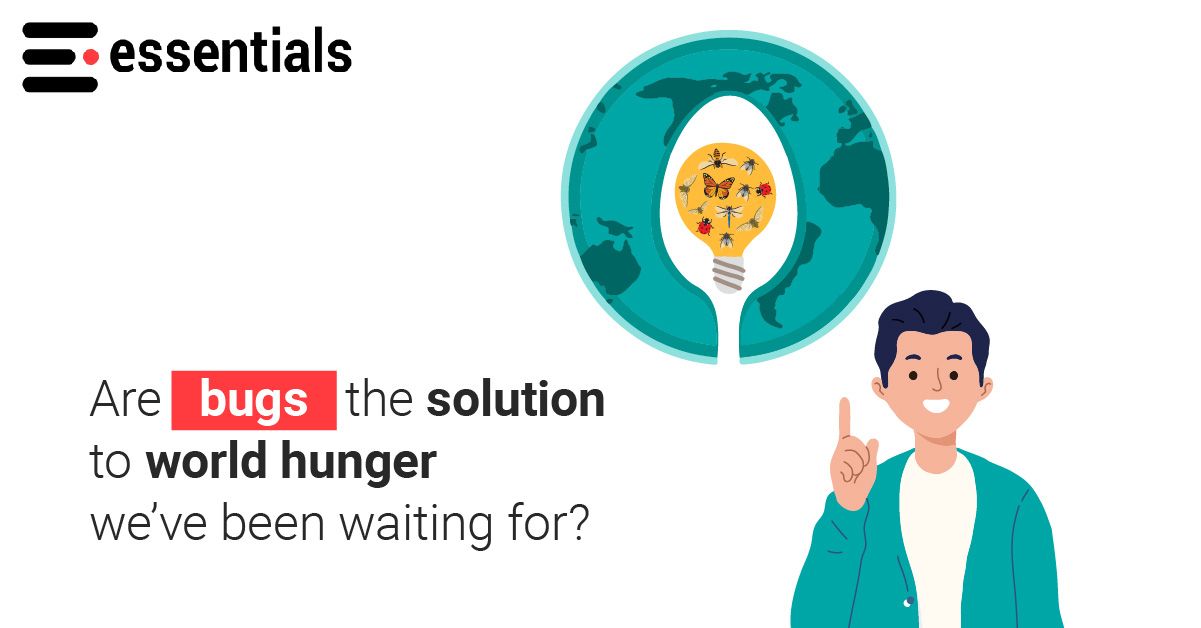
Are bugs the solution to world hunger we’ve been waiting for?
Bugs are healthy, nutritious and plentiful. So why don’t humans eat more of them? It all started in 2017 when a researcher contacted Sylvain Hugel (one of the leading experts of crickets in the Indian Ocean Islands), asking for help identifying which Madagascar species could be fit for humans to consume. Sylvain thought it must be a joke--“I’m working to protect those insects, not eat them.” he wrote back tartly. Unfortunately, or fortunately for Sylvain, Brian Fisher, an ant specialist at the California Academy of Sciences in San Francisco, kept writing.
80% of Madagascar’s forests have been destroyed
Fisher noticed that almost 80% of Madagascar’s forests have been destroyed since the 1950s, with an additional 1-2% cut down each year for livestock. If Hugel and Sylvain wanted to have any insects to keep studying, they had to give locals an alternative food source. With two-thirds of Madagascar’s population already consuming insects as a seasonal snack, it shouldn’t be too much of a jump for them to embrace a more substantial form of insect protein.
“The United Nation’s Food and Agriculture Organization [FAO] says that agricultural production worldwide will have to increase by 70% in order to feed a global population expected to reach 9.1 billion by 2050. Yet agriculture is one of the biggest drivers of natural destruction, threatening 86% of the 28,000 species most at risk of extinction.”
One fateful day Hugel prepared a roasted, salted cricket, and the rest is history. He now writes about the nutritional benefits of insects while eating copious amounts himself. He also set up a cricket farm with Fisher in the Madagascar capital of Antananarivo to produce ground cricket meal, which is used by organizations like the international aid agency Catholic Relief Services to combat famine, as well as at tuberculosis treatment centers. While Valala Farms continues to expand, it has never lost sight of its original goal—to provide a sustainable food source for locals. As 80% of the world’s farmland is used for livestock, while only representing 18% of the calories consumed, if we are able to cut down on our meat consumption, we will free up farmlands to diversify our food sources. We don’t even have to go meat free-- insects are full of protein (60% of their weight), rich in minerals, and require less land and resources to harvest. Two billion people largely in Africa, Latin America and Asia already consume insects. The real battles will be in Europe and North America. Could this six-legged insect be the tiny solution to world hunger? It depends on if we’re willing to change our eating habits. Cricket burger anyone?
Read the full article here.
Talk to us: Do you think bugs could be a viable food source for humans in the long run? Let us know in the comments below, we would love to hear from you.
Take a look at more top articles, trends and influencers by signing up to our newsletter—By getting to choose which topics interest you the most, you get the latest news delivered with ease: https://partners.essentials.news/multiple-signup